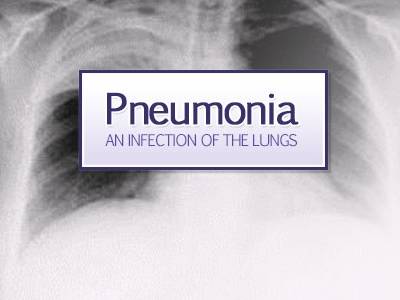
≡
Pneumonia is the most common cause of hospital admission (aside from childbirth) for adults in the U.S. Community-acquired pneumonia can be acquired anywhere, anytime. Bacterial and viral pneumonia are contagious, so you can pick it up from someone’s stray cough or sneeze, by sharing cups, or not washing your hands as often as you should.

Then there is healthcare-associated pneumonia, which is the kind you pick up while staying in the hospital or at a chronic care facility, like a nursing home or rehab center. “Pneumonia is an infection in the gas-exchanging units of the lung - the air sacs in your lungs become inflamed or even fill with fluid or pus, which interferes with your body’s ability to deliver oxygen to your blood. About half the time, it’s due to bacteria, the other half the time, it’s due to viruses.”
The most common type of pneumonia is caused by the bacteria streptococcus, or the same type of bacteria that causes strep throat. Influenza is also a key virus that can spur pneumonia and fungi can be a culprit, too. “Pneumonia develops if the organism overwhelms the patient’s host defences. This basically means that a foreign bug takes over your immune system, even if you’re generally healthy. That’s because certain organisms, like those associated with the flu, can be particularly hostile or invade your body in large numbers."
Pneumonia can look a lot like the common cold from the outside. Amongst its most common symptoms are:
Check in with your medical advisor as soon as you start experiencing symptoms of pneumonia, especially if those symptoms start getting worse. Even better than treatment is prevention, which comes in the form of immunization. Make sure you get your flu shot every year and if you’re someone suffering from chronic illness or you’re over the age of 65, ask your doctor about the pneumococcal vaccine, which protects your body against the streptococcus bacteria.